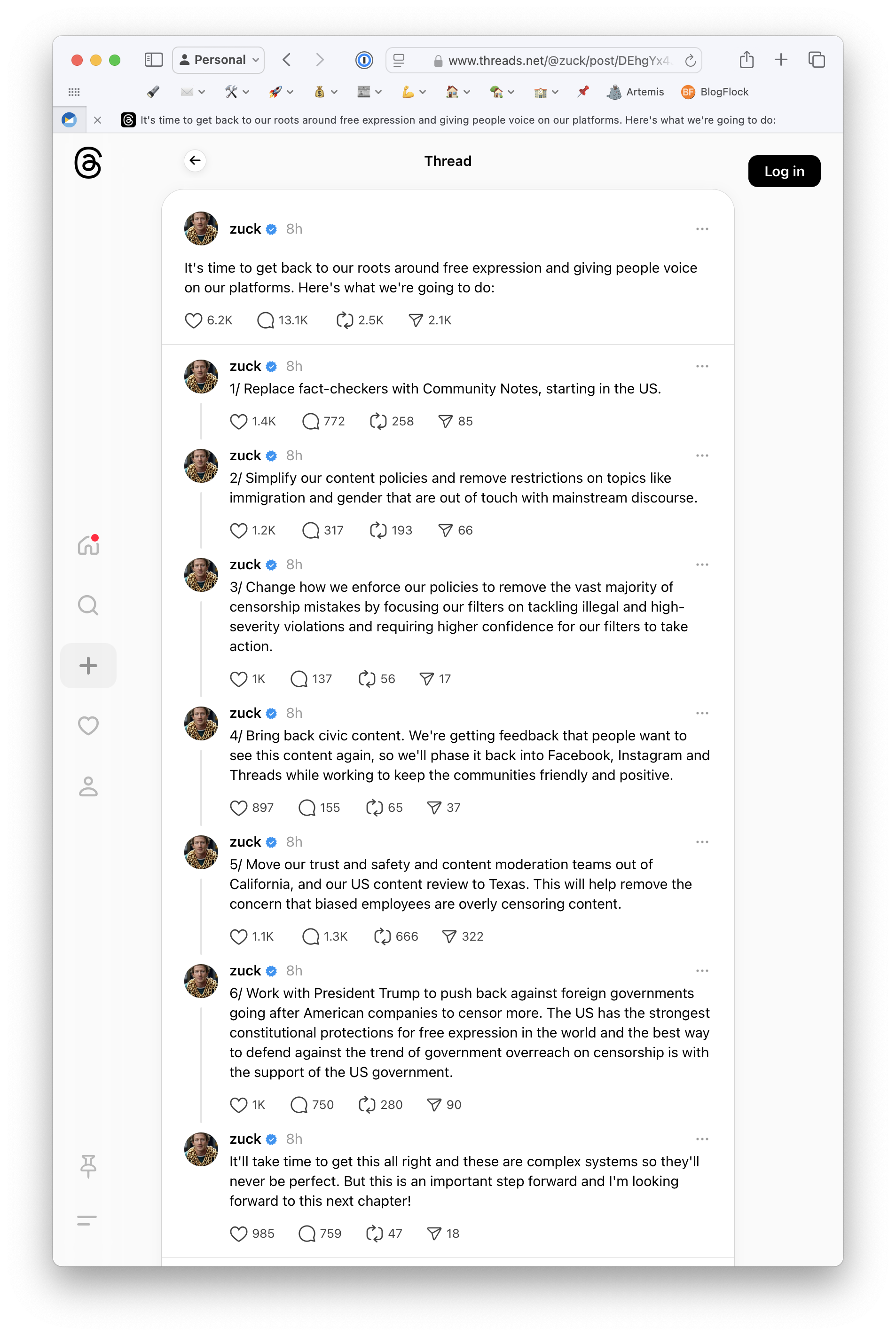Threads Moderation Changes
There has been a lot of noise today about Mark Zuckerberg’s announcement on Threads about their moderation policies. My position is unchanged — private companies can choose their policies and along the lines of the law they can do what they wish. I don’t think it is even right to call it censorship. Am I being censored if I get kicked out of a mall for being a jerk? Nope.
I did find it wild that he posted this all exactly four years to the day from when he blocked Donald Trump from Facebook and Instagram:
We believe the risks of allowing the President to continue to use our service during this period are simply too great. Therefore, we are extending the block we have placed on his Facebook and Instagram accounts indefinitely and for at least the next two weeks until the peaceful transition of power is complete.
I actually temporarily disabled my blocker so I could access this. Text of Zuckerberg’s statement today, in normal text instead of a “Thread-storm”. Seriously people, blogs exist and you can type more than a sentence in a post. How about fixing that?
It’s time to get back to our roots around free expression and giving people voice on our platforms. Here’s what we’re going to do:
- Replace fact-checkers with Community Notes, starting in the US.
- Simplify our content policies and remove restrictions on topics like immigration and gender that are out of touch with mainstream discourse.
- Change how we enforce our policies to remove the vast majority of censorship mistakes by focusing our filters on tackling illegal and high-severity violations and requiring higher confidence for our filters to take action.
- Bring back civic content. We’re getting feedback that people want to see this content again, so we’ll phase it back into Facebook, Instagram and Threads while working to keep the communities friendly and positive.
- Move our trust and safety and content moderation teams out of California, and our US content review to Texas. This will help remove the concern that biased employees are overly censoring content.
- Work with President Trump to push back against foreign governments going after American companies to censor more. The US has the strongest constitutional protections for free expression in the world and the best way to defend against the trend of government overreach on censorship is with the support of the US government.
It’ll take time to get this all right and these are complex systems so they’ll never be perfect. But this is an important step forward and l’m looking forward to this next chapter!
